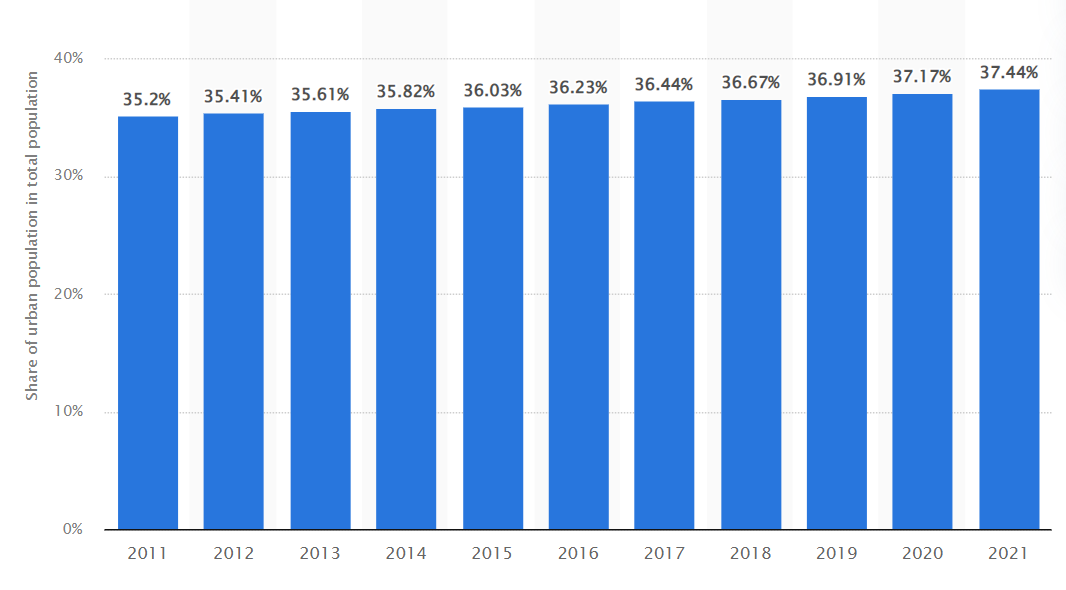INP-WealthPk
Ayesha Saba
A paradigm shift in urban governance is needed to reap the full benefits of urbanisation as urban areas have conspicuously been left out of the large policy debate despite their significant economic contribution.
Cities emerge as the economic hubs of the country. No country can achieve growth and economic development without urbanising. However, without proper urban planning or strategy, the cities are experiencing haphazard growth, which leads to challenges of development of informal and unauthorised settlements, housing shortage, excessive pressure on availability of services, issues of sanitation, pollution, lack of access to water, over-crowding, and other social problems.

Source :
https://www.statista.com/statistics/455907/urbanization-in-pakistan/
According to the latest figures, from 2011 to 2021, there has been a persistent increase in urbanisation in Pakistan. The graph below shows that urban regions form 37.44% of the population. According to the United Nations Population Division, approximately half of the country's population will be living in cities by 2025. The 10 big cities account for 95% of the federal tax income with Karachi alone accounting for 12-15% of total GDP and 55% of the country's federal tax receipts. Moreover, seven out of 10 main cities in Pakistan have higher per capita earnings than the country as a whole, and urban poverty is typically lower. (Source: UN Population Division).
An urban economist and researcher Dr. Naveed Iftikhar, while talking to WealthPK said, “The rapid urbanisation in Pakistan is an opportunity, but the challenge is poor urban management. There is no focus on the urban economy in Pakistan at this moment as the country lacks the planning of urban infrastructure and has no effective urban policy. Being an underdeveloped country, Pakistan is urbanising at the fastest pace in South Asia, creating a burden on existing infrastructure. This burden is shallowing urban resources and creating challenges for economic development.”
“For a well-functioning society, the government must revamp its settlement policy and channel development through statutory measures and a thoughtful implementation process. For sustainable development, the government should invest in both the urban and rural areas as they have equal importance. Furthermore; policy-making should be based on province and city characteristics and apply suitable solutions to prevent urban sprawl.”
Pakistan is a signatory to the Sustainable Development Goals (SDGs). SDG 11 is about sustainable human settlements. This goal's central theme is making cities and human settlements, inclusive, safe, resilient and sustainable.
Federal Minister for Planning, Development, and Special Initiatives Ahsan Iqbal has also highlighted in different forums that the current government is keen to achieve SDGs.
To tap the potential of increasing urbanisation to drive economic growth, the government has planned several initiatives. According to the ministry of planning, the Public Sector Development Programme (PSDP) 2021-22 has allocated roughly Rs24.2 billion for housing and works division.
Credit : Independent News Pakistan-WealthPk



